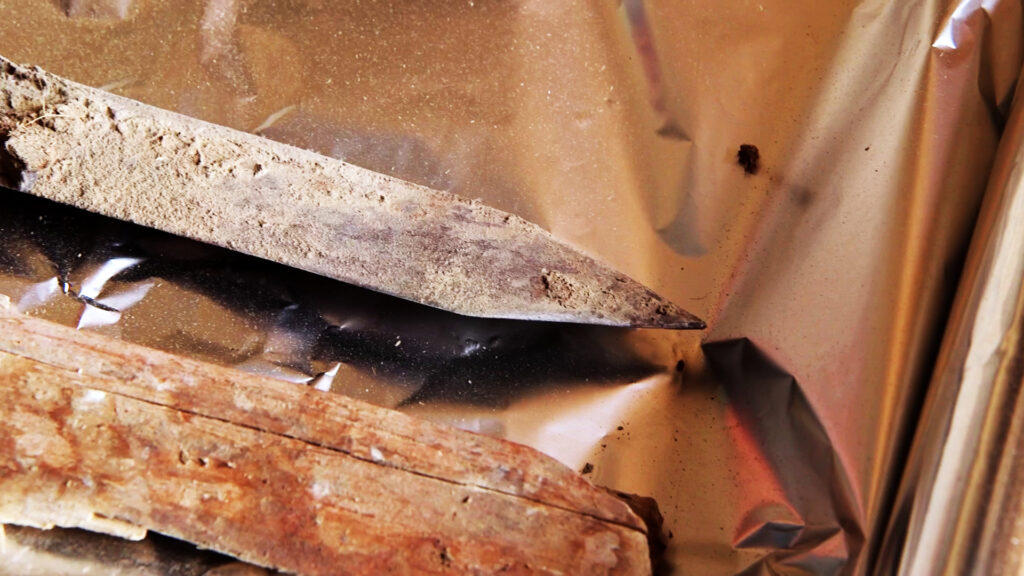
Rare Roman swords captured by Jewish rebels found in Ein Gedi Cave
A cache of four Roman swords and a shafted weapon known as a pilum were discovered in a cave in the Ein Gedi Nature Reserve in the Judean Desert. The 1,900-year-old swords were remarkably well-preserved as they were in their wood and leather scabbards.
“Finding a single sword is rare—so four? It’s a dream! We rubbed our eyes to believe it,” the researchers who found the weapons stated.
A new book published on Wednesday titled ‘New Studies in the Archaeology of the Judean Desert: Collected Papers’ suggests that the weapons were captured by Judean rebels as the spoils from a battle war and hidden in the cave.
The book summarizes six years of archaeological surveys and excavations carried out in the Judean Desert caves— a national project initiated by the Israel Antiquities Authority (IAA), together with the Ministry of Heritage and the Archaeological Office for the Military Administration of Judea and Samaria.
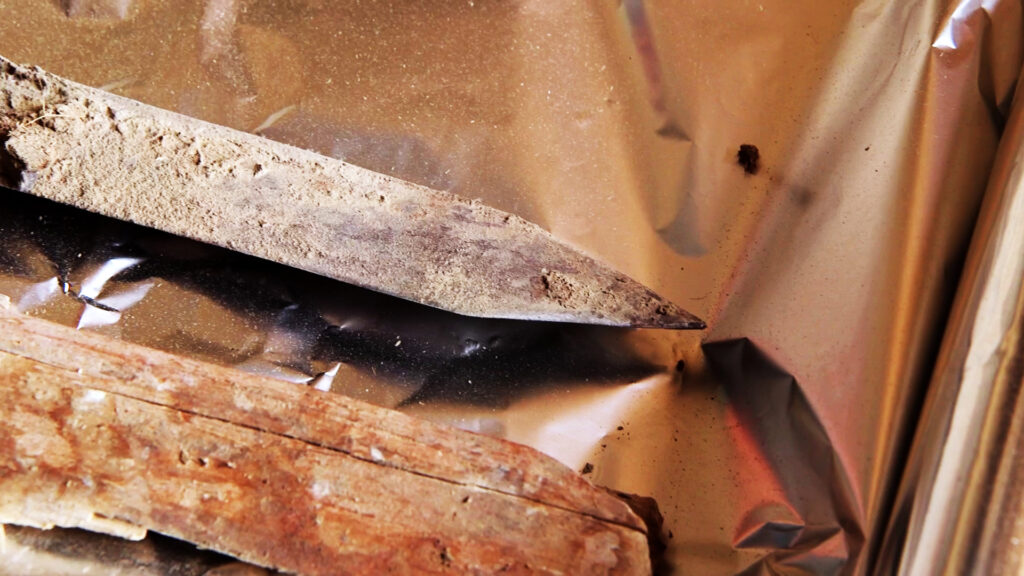
The rare weapons were exhibited for the first time in a press conference that took place Wednesday morning with Eli Escusido, the Director of the IAA, and the researchers. This conference coincided with the launching of the book, which is devoted to new archaeological finds discovered in the Judean Desert Survey Project.
The weapons were discovered in a small hidden cave located in an area of isolated and inaccessible cliffs north of Ein Gedi, in the Judean Desert Nature Reserve, by Dr. Asaf Gayer of the Department of the Land of Israel Studies and Archaeology at Ariel University, geologist Boaz Langford of the Institute of Earth Sciences and the Cave Research Center at the Hebrew University of Jerusalem, and Shai Halevi, IAA photographer, visited the cave.
While on the upper level of the cave, Gayer spotted an extremely well-preserved Roman pilum— a shafted weapon in a deep, narrow crevice. He also found pieces of worked wood in an adjacent niche that turned out to be parts of the swords’ scabbards.
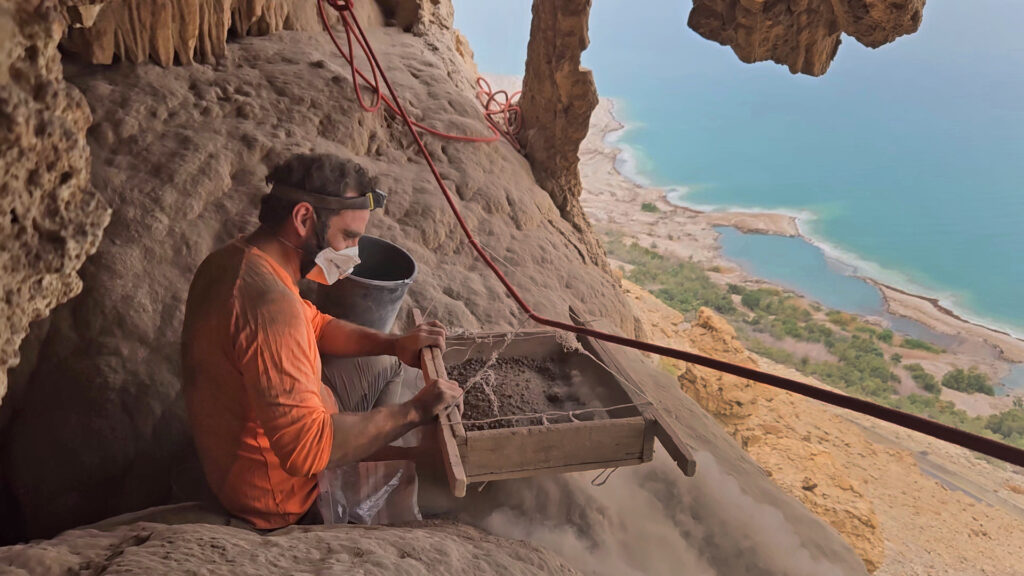
The researchers reported the discovery to the IAA Survey Team, who are conducting a systematic scientific project in the Judean Desert caves. As part of this survey, initiated by the IAA and in cooperation with the Ministry of Heritage and the Archaeological Office for the Military Administration of Judea and Samaria, hundreds of caves have been investigated over the past six years, and 24 archaeological excavations have been carried out in selected caves, with the aim of saving the archaeological remains from the hands of looters.
The Judean Desert Cave Survey team returned to the cave and carried out a meticulous survey of all the crevices in the rock, in the course of which they were astonished to find the four Roman swords in an almost inaccessible crevice on the upper level of the cave. The swords were exceptionally well preserved, and three were found with the iron blade inside the wooden scabbards. Leather strips and wooden and metal finds belonging to the weapons were also found in the crevice. The swords had well-fashioned handles made of wood or metal. The length of the blades of three of the swords was 60–65 cm, their dimensions identifying them as Roman spatha swords, and the fourth one was shorter with a 45 cm long blade, identified as a ring-pommel sword. The swords were carefully removed from the crevice in the rock and transferred to the Israel Antiquities Authority climate-controlled laboratories for preservation and conservation.
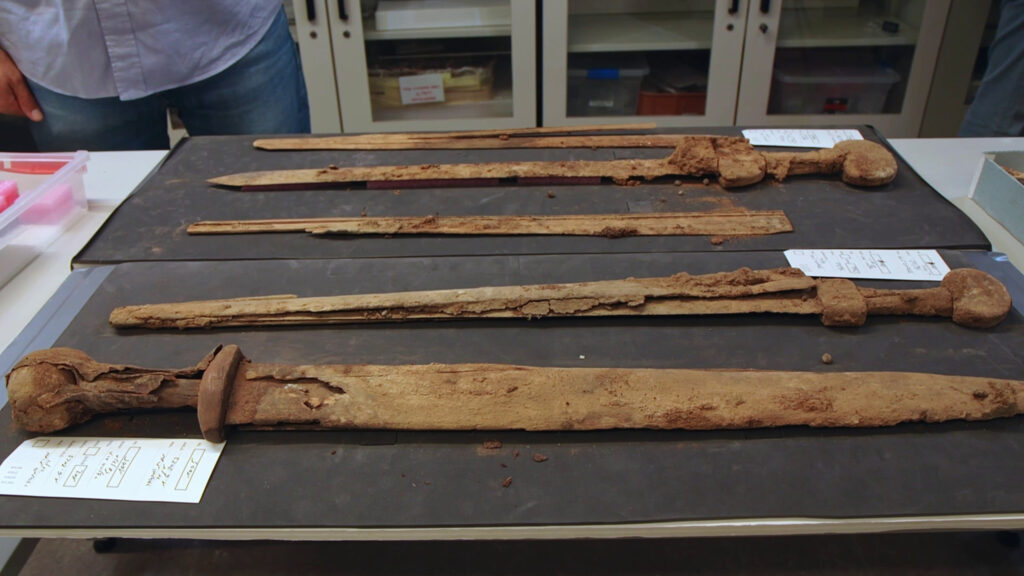
The initial examination confirmed that these were standard swords the Roman soldiers stationed in Judea in the Roman period employed.
“The hiding of the swords and the pilum in deep cracks in the isolated cave north of Ein Gedi hints that the weapons were taken as booty from Roman soldiers or from the battlefield and purposely hidden by the Judean rebels for reuse,” said Dr. Eitan Klein, one of the directors of the Judean Desert Survey Project.
“Obviously, the rebels did not want to be caught by the Roman authorities carrying these weapons. We are just beginning the research on the cave and the weapon cache discovered in it, aiming to try to find out who owned the swords and where, when, and by whom they were manufactured. We will try to pinpoint the historical event that led to the caching of these weapons in the cave and determine whether it was at the time of the Bar Kokhba Revolt in 132–135 CE.”
Following the discovery of the swords, an archaeological excavation was undertaken in the cave by the Israel Antiquities Authority, directed by Eitan Klein, Oriya Amichay, Hagay Hamer, and Amir Ganor. The cave was excavated in its entirety, and artifacts dating to the Chalcolithic period (c. 6,000 years ago) and the Roman period (c. 2,000 years ago) were uncovered. At the entrance to the cave, a Bar-Kokhba bronze coin from the time of the Revolt was found, possibly pointing to the time when the cave served for concealing the weapons.
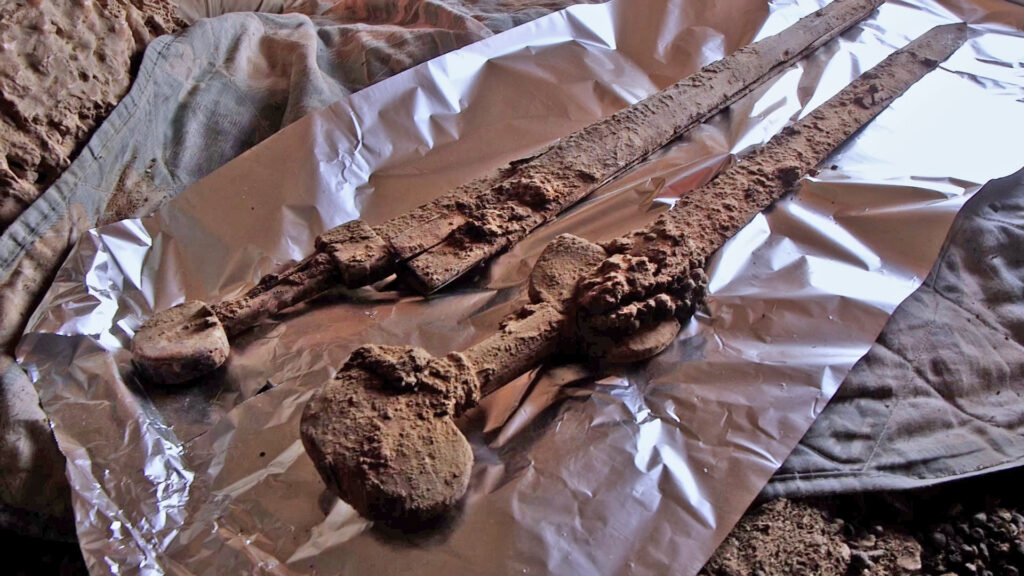
Amir Ganor, Director of the Antiquities Looting Prevention Unit at the IAA lamented the danger that artifacts in the field face.
“The Judean Desert doesn’t cease to surprise us. After six years of surveys and excavations, in the course of which over 800 caves were systematically recorded over an area of 170 km of cliff-line, we still discover new treasures in the caves,” he said. “In the course of the project, we unfortunately encountered tens of caves that have been plundered since 1947. I shudder to think how much historical knowledge would have been lost had the looters reached the amazing artifacts in this cave before the archaeologists. This time, thanks to the national project initiated by the Israel Antiquities Authority, we managed to get there before the looters, and to save these fascinating finds for the benefit of the public and researchers around the world.”
The post Rare Roman swords captured by Jewish rebels found in Ein Gedi Cave appeared first on Israel365 News.
Israel in the News